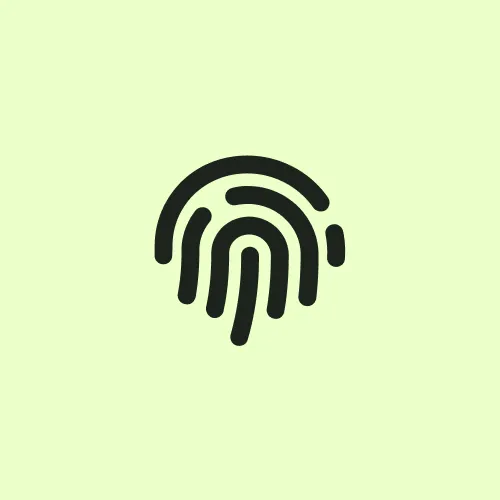
Binge eating disorder
Our personalised programs explore the emotional, physical, and psychological drivers of binge eating – helping you break the cycle for good.
Tailored treatment that goes beyond food to restore balance, self-worth, and long-term wellbeing.
Binge eating can feel like a loss of control followed by guilt, shame, and isolation. But beneath the behaviour is something deeper: emotional pain, stress, unmet needs, or a long history of restriction. Our residential programs are designed to help you unpack these patterns, rebuild trust in your body, and move forward with a renewed sense of self-worth.
Begin your personalised recovery journey.
The impact of binge eating disorder
Binge eating is not about willpower. It’s a complex, emotional response to internal distress.
Marked by episodes of consuming large quantities of food in a short period, often in secret and without control, binge eating is usually followed by feelings of shame, guilt, and distress. Unlike bulimia, it doesn’t involve purging but the emotional and physical toll can be just as severe.
This pattern is often a response to underlying psychological distress, restrictive food behaviours, trauma, or attempts to self-soothe. It’s not about lack of discipline - it’s about trying to cope with what feels unmanageable.
Without support, the cycle can become entrenched but with early, personalised intervention, it can be broken. Our one-on-one programs help address the root causes and support sustainable, long-term healing.
We also work on improving gut health, an often overlooked but vital piece of the puzzle. A healthier gut can reduce inflammation, stabilise mood, support clearer thinking, and help regulate cravings, making long-term mental stability and recovery more achievable.
Because real healing isn’t just about what you eat, it’s about how you feel, how you cope, and how you come back home to yourself.


Steps that make the difference
Understanding Your Story
We begin with a full assessment of your eating behaviours, emotional history, physical health, and nervous system state. Your program is built around your unique relationship with food, body, and self — no assumptions, no stereotypes.
Rebuilding Safety in the Body
We stabilise the system through functional nutrition, gut support, and somatic therapies that calm the body and reduce internal chaos. Nature therapy, targeting prescriptive movement and equine work help restore a sense of safety and reconnection without force or fear.
Restoring Biological Balance
Disordered eating disrupts hormones, digestion, mood, and brain function. Through naturopathy, targeted nutrition, and supplementation, we replenish what’s been depleted and support long-term balance. By regulating mood and restoring brain function, we build the resilience needed for lasting recovery.
Healing the Relationship with Food & Self
Using evidence-based therapies like CBT-E, ACT, IFS, and trauma-informed body image work, we help you discover why control around food has become your coping mechanism and guide you to develop healthier, more effective ways to manage emotions. We work on rebuilding trust, emotional regulation, and identity - supporting you to eat, feel, and live free from shame and the need for control.
Aftercare
Recovery continues after you leave. Every client receives 12 months of structured aftercare, including a dedicated mentor for ongoing support, accountability, and real-world guidance - wherever life takes you.
What your program includes
Explore the evidence

Eating disorders: signs, symptoms, and how to find support

Health retreat or wellness retreat - know the difference!
Testimonials
FAQs
Understanding and recovering from a binge eating disorder
Binge eating is more than just overeating, it’s a pattern driven by emotional distress, often followed by guilt, shame, and a sense of loss of control. This section answers common questions about how binge eating disorder develops and how personalised, compassionate treatment can support healing.
How do I know if I or someone I love needs help?
Warning signs can include obsessive thoughts about food or body image, restrictive eating, bingeing or purging, rapid weight loss or gain, and withdrawal from social situations. If eating habits are affecting health or daily life, it’s worth seeking support.
Do you offer medical and nutritional support?
Yes. Our integrated team includes medical doctors, nurses, and qualified dietitians who work together to support both the physical and psychological aspects of eating disorder recovery.
Is the program suitable for people who don’t fit the ‘typical’ eating disorder profile?
Absolutely. Eating disorders affect people of all ages, genders, and body types. We tailor every program to the individual, not a diagnosis.
How is binge eating different from bulimia?
Unlike bulimia, binge eating disorder does not include purging or other compensatory behaviours. The emotional pain and physical effects, however, can be just as severe and long-lasting.
What are the signs of binge eating disorder?
Signs may include eating unusually large amounts of food in secret, feeling out of control while eating, eating rapidly or until uncomfortably full, and avoiding social situations involving food.
How can Noosa Confidential help with binge eating?
Our programs combine nutritional therapy, psychological support, medical care, and trauma-informed counselling to address both the behaviour and its root causes. We create a personalised, non-judgemental path to recovery that prioritises sustainable change and emotional wellbeing.
We’re here to help.
Let’s talk about how we can support you.








